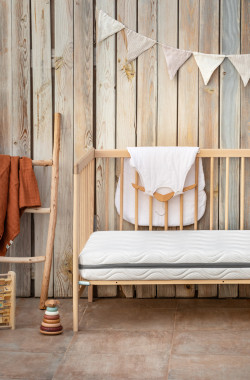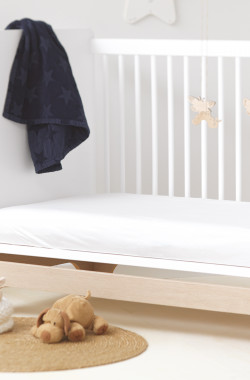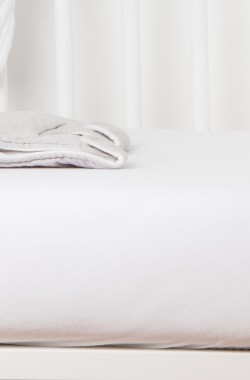
What you need to know about your baby’s nap | Tips & Advice
Naps are an essential part of a baby’s day and are very important for them. Babies need a lot of rest and sleep, especially during the day.
For young parents, a baby’s nap can be a source of worry and stress. It is not easy to know what is the right nap time, what routine to adopt or what to do when baby cries at nap time.
Duration of the nap, routine, crying, the sleep experts at Kadolis explain everything you need to know about your baby’s nap.
How long should a nap last for a baby?
To know how long a nap should last for a baby, you must first of all take into account his age. Depending on your baby’s age, the frequency and duration of his naps will vary.
At birth and up to 3 months, a baby sleeps practically all day long. Therefore, we don’t really talk about naps before the age of 3 months. It is from this age onwards that a nap routine should be introduced in infants.
Napping for a 3-month-old baby
A 3-month-old baby should get 15 hours of sleep each day. According to mothers, an infant of this age usually sleeps between 10 and 12 hours at night. This leaves between 5 and 3 hours of sleep to be spread over your baby’s day.
Therefore, a 3-month-old baby’s nap routine may consist of 2 naps during the day. One in the morning and one in the afternoon. The duration of a 3 month old baby’s nap will therefore be around two hours each.
The nap routine for a 3-month-old baby is valid until he is 1 year old. Once this age is reached, your baby will need less sleep during the day.
Napping for a 1-year-old baby
A 1-year-old baby’s nap is different. In terms of daily sleeping hours, your baby will still need about 15 hours of sleep. It may be slightly less.
However, because your baby is more active during the day (walking, playing, laughing, etc.), he or she needs more sleep at night. On average, this lasts 12 hours. As a result, it is no longer necessary to take two naps a day.
A one-year-old baby’s nap can therefore be summed up as one nap per day, in the afternoon. The duration of this nap is always about 2 hours. This allows your baby to recharge the batteries in a busy day.
As your baby grows, the naps can be reduced little by little. After the age of 2 years, it is possible to reduce the duration of naps by 30 minutes. Keep in mind, however, that night-time sleep should still be important to him. A baby from 1 to 4 years old needs to rest and sleep through the night.
Napping after 4 years
After the age of 4, the child’s nap changes. In fact, it is from this age onwards that the nap will gradually disappear from his daily routine.
We advise you to monitor your baby’s signs of tiredness yourself and plan naps accordingly. Naps can be as short as 30 minutes or as long as 1.5 hours.
Depending on his activity and alertness level, you should carefully monitor your child’s fatigue and continue to schedule naps if necessary.
Until what age should baby nap?
From the age of 4, naps will gradually fade from your child’s days. It is at the age of 6 that it is considered that naps become optional.
As mentioned earlier, it is up to you to monitor your child’s fatigue and adopt naps if necessary. Also, do not make your child nap for too long if it is not necessary.
What is a baby’s nap routine?
A baby’s nap routine is very important, especially for younger children. It’s important to establish naptime routines so that your baby understands that it’s part of their day.
Here are our tips for baby’s nap routine:
- Make sure your baby goes to bed at the same time each day: to establish a nap routine, you need to establish a routine in the times at which these naps take place.
- Have your baby rest in his own bed, in his own room, in a quiet place.
- Avoid making your baby sleep in complete darkness: you need to make him understand that this is a nap, not a long sleep session such as at night. You can dim the lights, but try not to make your baby sleep in complete darkness.
- Undress your baby and put on a bodysuit or casual outfit.
- Provide a comfortable baby mattress to make it easier for your baby to fall asleep and get a better sleep.
Improving baby’s nap: choosing a mattress and bedding.
To guarantee your baby good naps, it is important to pay attention to his mattress and bed linen. You should choose your baby’s mattress carefully so that he can sleep well.
A soft, an organic mattress is ideal for your baby. This will improve the quality of his naps and make it easier to put him to bed each day.
Finally, the choice of mattress protector and fitted sheet is equally important. For comfortable, dry naps, a soft fitted sheet and a waterproof mattress protector is the best choice. Beyond the nap routine, the choice of bedding also plays an important role in the quality of his naps and nights.
Baby cries at nap time: what to do?
Many young parents are concerned about their baby crying during nap time. Whether it is at bedtime or during naptime, sometimes baby wakes up and cries. Every parent does not always know how to react to this. Should they let baby cry or tuck him in?
There is no right answer to this question. A baby can cry at the beginning of a nap because he is getting ready for sleep or because he is getting rid of the energy he spent in the morning. A baby may also continue to cry if you do not come to see him, out of frustration.
So the right thing to do is up to you. Some parents prefer to come to their baby straight away to reassure him or her, while others prefer to leave him or her crying until he or she falls asleep. Each of these attitudes is viable and it is up to you to find the method that works for you and your baby!
Trust Kadolis for your baby’s mattress and bedding
Baby’s nap is a serious matter. Young parents have a lot of questions about it. The length of baby’s nap according to age, the routine, it is important to respect your baby’s sleep and to make napping a habit in his days.
To do this, it is essential to provide your baby with a quality mattress. The mattress has a great impact on your baby’s sleep. The Cocolatex crib mattress from Kadolis is made of 100% natural materials and ensures comfort and hygiene for your baby.
Finally, to cover and protect your baby’s mattress, choose the Kadolis organic cotton fitted sheet and our waterproof baby mattress cover. Offer the best for your baby, for soft and dry nights!

















